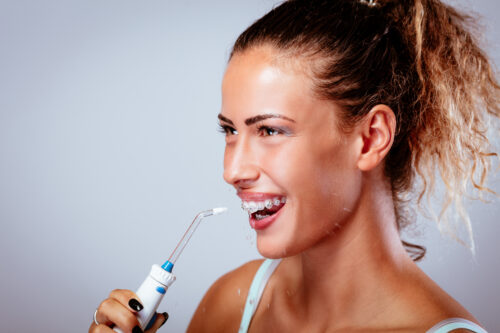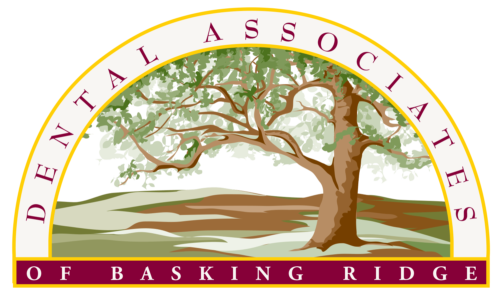
When it comes to maintaining good oral hygiene, it’s crucial to develop a consistent and personalized oral care routine that best suits your unique needs. It’s importnat to understand that using a toothbrush alone may not effectively clean hard-to-reach areas between your teeth, known as interdental spaces. Therefore, it’s essential to incorporate additional oral hygiene practices such as flossing to ensure a comprehensive cleaning to maintain your oral health. Many wonder whether implementing water or traditional flossing into their daily routine is better. Please continue reading to learn the pros and cons of each and how our seasoned general dentistry/dentists located in Basking Ridge & Morristown, NJ, can help you take care of your teeth and gums.
What’s the Difference Between Water Flossing and Traditional Flossing?
As mentioned above, flossing is vital in your daily oral care routine. A water flosser, dental water jet, or oral irrigator is a hand-held device that squirts water between teeth, removing debris and plaque. Often, the flosser tool connects to a water tank, which you refill when the machine is empty. With traditional floss, you use a waxed or non-waxed string, maneuvering it between your teeth and under your gumline to remove debris and bacteria.
Which is Better?
While traditional floss is typically considered the “gold standard” recommended by dentsits, as it has been proven effective in preventing gum disease if appropriately performed. Water flossers can be an excellent alternative for people with trouble with manual flossing. Traditional flossing poses challenges for individuals with dental fixtures like braces or bridges; water flossers can serve as a tool for keeping your teeth clean. However, a water flosser is equipped with a tank that needs electricity to function. Therefore, it’s not as convenient and portable as traditional floss.
According to research, the best way to floss depends on your unique needs. String and water flossers have benefits and disadvantages, yet they both boost disease prevention and oral health. If manual flossing is too difficult, water flossing can help you clear food debris and plaque. It’s important to stay away from using inappropriate tools to clean your teeth, such as your fingernails. For optimal results, you should floss at least once a day after brushing to ensure that you clean those hard-to-reach spaces.
If you need to schedule an appointment with a knowledgeable dental professional, you should contact Dental Associates of Basking Ridge. Our dedicated team has proudly served patients for decades, helping them maintain the healthiest mouth and the brightest smile. If you have dental concerns, please don’t hesitate to contact our office today.






